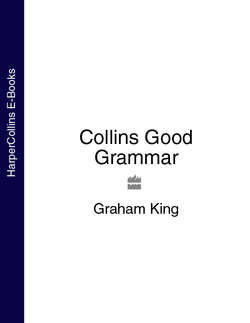Читать книгу Collins Good Grammar - Graham King - Страница 20
Starting a Sentence with ‘And’ and ‘But’
ОглавлениеOne of the more persistent grammatical superstitions is that you can’t begin a sentence with conjunctions such as And and But. This is curious, because many of the finest writers in the English language – Shakespeare, Blake, Tennyson, Kipling, to name just four – have kicked off sentences with And, and so has the Bible: read the opening chapter. Probably the most popular rebel was Blake, who chose to begin his poem (better known as Jerusalem) with ‘And did those feet in ancient time . . . ’
Much the same applies to But. This time Thomas Macaulay, in his The History of England, is the hero of the rebel cause:
There were gentlemen and there were seamen in the navy of Charles the Second. But the seamen were not gentlemen; and the gentlemen were not seamen.
There is no rule to say that you can’t begin a sentence or a paragraph with the conjunction But. When you want to express a doubt or outright disagreement, beginning a sentence with But can emphasise and dramatise your point. But don’t let it become a sloppy habit!
The Daily Express some years ago carried a memorable sentence in its sporting pages that not only began with But, but ended with but. And the sentence that followed it began with And:
Northumberland and Humberside will each hold the trophy for six months after fighting out an exciting 1-1 draw. But if the result was indecisive, then the soccer was anything but. And when all the medals have been engraved . . .
The sentence, as you will have seen, is all at once a simple, complex and beautiful construction. As Winston Churchill, one of the most expert users of the language, once wrote: ‘ . . . I got into my bones the essential structure of the ordinary British sentence – which is a noble thing’. Before we pass on to how a sentence is actually assembled with different kinds of words, it’s worth remembering the hierarchy in which it exists:
A word consists of one or more morphemes (speech elements).
A phrase consists of one or more words.
A clause consists of one or more phrases.
A sentence consists of one or more clauses.
A paragraph consists of one or more sentences.
